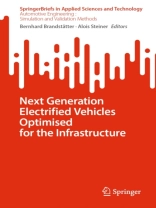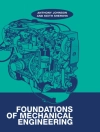This book provides insights into current research topics of powertrains for the next generation of electric vehicles as well as related vehicle components (e-axles, transmissions, brake systems, etc.). Further, as the interaction with the charging infrastructure becomes more and more important, also the topic charging is discussed in detail. Finally, communication and control not just within the vehicles but also with the infrastructure are needed and are treated in this book.
Chapter “Towards digitalisation of the charging value chain” and Chapter “Definition of a set of indicators for the EV impact assessment” are available open access under a Creative Commons Attribution 4.0 International License via link.springer.com.
สารบัญ
Future Brake Systems & Motion Control.- Advanced methodologies for brake validation of EV vehicles.- Torque Vectoring testing in X-in-the-Loop Simulation Environment.- Modelling and Control Solution of an E-axle for Third-Generation Electric Vehicles.- Towards digitalisation of the charging value chain.- Definition of a set of indicators for the EV impact assessment.- Protocols & interfaces for EV charging.
เกี่ยวกับผู้แต่ง
Bernhard Brandstätter studied Electrical Engineering in Graz, Austria, and Genoa, Italy. He received his Ph.D. in Electrical Engineering and his venia docendi from Graz University of Technology in 1999 and 2003, respectively. From 2002 to 2005, he was engaged in a major Austrian research project on automotive measurement. From 2005 to 2014, he served as Research Coordinator and CTO of ELIN Motoren Gmb H. In 2014, he joined VIRTUAL VEHICLE Research Center, heading the department “Energy Management and Human Centric Systems” as well as the business unit “Efficiency and Comfort” and acquiring and coordinating several European projects. He is Author or Co-author of more than 100 scientific papers in the fields of optimization, field numerics, electrical machines, and inverse problems.












